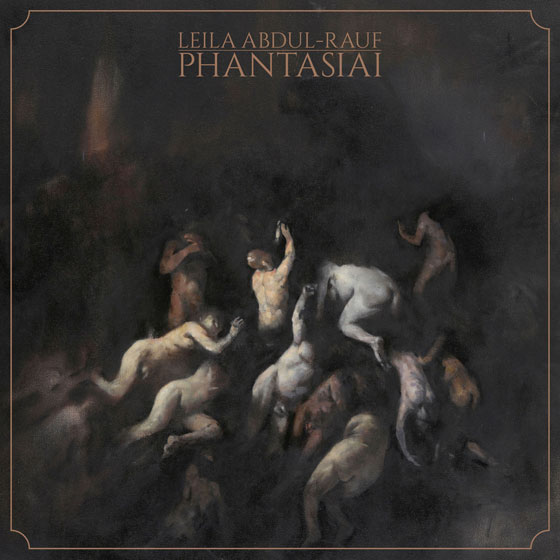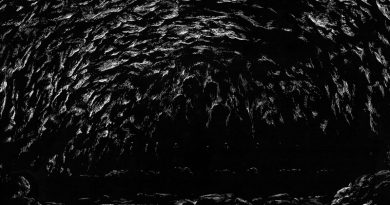Review: Leila Abdul-Rauf ‘Phantasiai’
Phantasiai unmoors feelings and thoughts, casting them adrift to float in spirals, spirals which move neither up nor down. The casting off is seductive, and one struggles to stay with the compositions, due to the listener being drawn inside of the hallucinatory musical space, where one is hypnotised, and from which awakening only occurs when the pieces have concluded.

The motif of the first track, Distortions In Phantasy I: Lure, is reminiscent of a child’s xylophone melody, its haunting and playful, although the uncanniness that lingers is founded in the production. The effects fragment memory and time, the musical language usually used to convey childlike dream or nightmare, has been transformed and manipulated. It seems the past has been replaced, or replicated, a representation of the past expressed through another language is now presented to us.
The second track, Distortions In Phantasy II: Consumption, introduces horns, and the xylophone-esque sounds have become more earthy, the spiral has begun to descend ever so slightly. High pitch chimes contrast with the deep horns, sounds continue to linger and disorientate, the space is ever expanding.
Vocals are introduced in the fourth track, Distortions In Phantasy IV: Disembodiment, which drift and float, however remain eerily out of reach. A slight essence of dark jazz feels apparent, perhaps in the vein of Bohren and Der Club Gore’s Black Earth album, more in relation to the sparseness, and the attention to simple tones and sounds. However unlike on the Black Earth, the sparse melody and droning instruments are used to maintain the expansiveness of the sound, and do not ground the music.
The music offers nothing to be tied down to, it does not lead you forward or take you back, it places you in the present…
When listening to this album, at times I felt as though I was literally unmoored and ship like, however the direction of movement was difficult to gauge, and so was the vessel itself. Leading to an analogy. Although a cliché in some respects, The Ship of Theseus is one of the oldest Greek philosophical questions; if a ship is rebuilt plank for plank, it then asks, ‘is it still the same ship’. The music here posed a similar question, in that it feels as though you exist, however, what if you’re unable to find a stable emotional reference point. It almost seems like the emotional language presented is a chimera of simulated pasts, and so, do you actually exist. Can our whole existence be artificially manufactured, and are we still ourselves, or does it matter?
Track seven, The I Emerges III: Imago And Mirror, is composed of floating vocals, and high pitch bell/chime types of sounds. It’s probably the most open and floating piece on the album, very dreamy and has a sense of washing over you, it is like a friendly, or innocent, haunting, perhaps a moment of naivety, there is however, always the looming shadow.
In the final track, The I Emerges IV: Cell, the piano and vocals allow for something recognisable, it brings the listener back to the music and an awareness of historical placement, as the recognition of a familiar language is grounding. It’s comforting, it’s human, very enchanting, although it feels as though something is being contained, or restrained, in the background, in the depths of the space. Do we have control over this thing which lurks beneath the surface, or is it consuming us, as with the sounds of the last track, which seem to play with the vocalist, taunting and waiting, the vocalist is the entertainment for a brief moment. We are in a digital era, where more of what we see and hear is AI generated, even if it looks real or like the original. Does it matter anymore, do we need something real?
Phantasiai is the perfect representation of a space we could be inhabiting now as human beings. The music offers nothing to be tied down to, it does not lead you forward or take you back, it places you in the present. The album continues to expand as you listen, its haunting in the respect of; it’s not what we know, it sounds like what we think we know.
Label: Cyclic Law | Cloister Recordings
Band Links: Facebook | Bandcamp | Instagram
Scribed by: Spencer Reid



